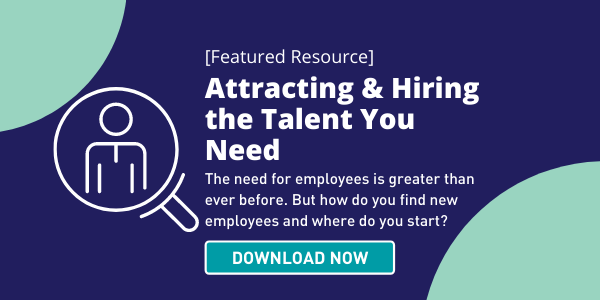HR News & Education
Check out the latest news and resources for small businesses covering topics such as human resources, employee engagement, and management.
New Hire FAQs: What Employers Need to Know
As an employer, you’re tasked with answering numerous questions during the hiring process as well as during onboarding. You may hear similar questions from candidates and new hires, and it can be frustrating to take time away from your other responsibilities to give satisfactory answers every time.
Creating a new hire FAQ can be a great way to save time and ensure that new employees have the information they need to get started. In this article, we’ll take a deep dive into new hire FAQs.
What Is a New Hire FAQ?
A new hire FAQ can be a workbook or pamphlet that’s distributed to new employees to provide them with the information they need related to the company, its benefits, and other details that may be pertinent to their position. If you find yourself answering the same questions over and over, you’ll want to include these in a new hire FAQ.
On top of answering questions for new hires, the FAQ can provide a source for employees to look back on when they have questions in the future. While it may take a bit of a time investment to create a new hire FAQ, doing so can alleviate stress for your new hires and make them more comfortable in their first weeks on the job.
What Information Should Be Included in a New Hire FAQ?
There are a variety of questions you can answer in your new hire FAQ. We’ll discuss some of these below, according to their functions.
General
General questions should provide information about the company itself. This can include the company's history, its mission and values, and the products and services it offers.
You can also include information related to top executives, as well as an employee chart that indicates the different departments and roles held within each department. The employee chart can give a small snippet of information about the tasks each role performs.
Information in the general section may include:
- The name and address of the company, as well as additional locations
- The mission and values of the company
- An organizational chart outlining roles within the company, including executives
- A short description of each role’s functions
- A description of products or services offered by the company
- A list of major customers
- A financial summary for the past few years
You can include short bios of executives who lead the company, including their tenure, what they are tasked with, and prior roles they have held.
An employee can refer to the general section throughout their time with the company. Depending on their role, they may refer to it for information on products and services, whom to contact for help with a problem, or overall details relating to the company.
Company Benefits
Company benefits often change from year to year. Medical plans get overhauled, and new benefits may be provided for employees to use. You can include a list of benefits and their costs to the employees, but if you do so, make sure the entire FAQ is updated annually to reflect changes.
Typical questions answered in the company benefits section include:
- Medical, dental, and vision insurance plans, deductibles, and costs
- Vacation and sick time policy, as well as any floating days off
- Wellness benefits, such as gym membership fees
- Remote work policy
- Maternity or paternity leave, elder leave, or other types of leave
- Short- and long-term disability plans
- Retirement plan benefits
- Company holidays
- Any other benefits that your company offers
It’s common for companies to offer several types of medical and dental plans. You can outline the details for each in your benefits section. This can also alleviate some of the workload for your benefits administration team.
In this section, you should also highlight when pay is typically distributed to team members.
Other Pertinent Information
Every company is different. Some have just a handful of employees who work from the same location, while others may have offices based in other states or abroad. Taking that into consideration, adding a section for specialized questions to your new hire FAQ can be beneficial.
For example, if you have a remote workforce, you may want to include information on how to connect to software that your company uses, as well as any VPN details for connecting to shared drives.
You can also indicate the expectations for remote work in terms of employee availability and where they may work from. If you have set up certain benefits for your remote workforce, such as reimbursement for home office costs or coworking centers, you should include those.
Want More Tips to Manage Your Workforce?
Symply regularly publishes articles related to managing your workforce, as well as topics related to HR and payroll. Subscribe to our news and resources to gain access to top tips for small business owners.


